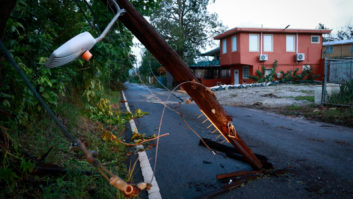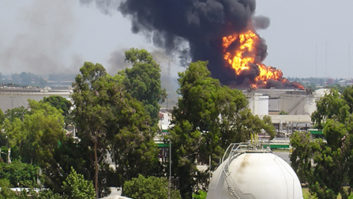The FCC has updated rules meant to improve the reliability and resiliency of wireless communications networks during emergencies. The goal is to keep cellphones working when disasters like hurricanes and wildfires strike, the commission says.
The Report and Order released this week makes wireless network resiliency cooperation mandatory for wireless carriers in the United States.
The FCC is introducing the Mandatory Disaster Response Initiative (MDRI) which largely codifies and builds upon the industry-developed Wireless Network Resiliency Framework. The Framework was developed by a group of facilities-based, mobile wireless service providers and had been endorsed by the FCC. However, this week’s actions extend the reach of the provisions to all mobile wireless providers to test their roaming capabilities and report on the performance of their implementation of the new MDRI.
FCC Chairwoman Jessica Rosenworcel in a release highlighted the major updates: “First, the order expands the times and places where carriers will be able to roam on each other’s networks during an emergency, improving the likelihood that people will be able to stay connected when the unthinkable happens.
“Second, it takes what has to this point has been a voluntary Framework, which promotes service continuity through coordination, assistance, and information sharing during and after emergencies and disasters, and makes it mandatory for all mobile network operators. We’ve seen that the mutual aid and other provisions of this Framework can be effective at speeding recovery and ensuring responders have all the information they need.”
[Related: “FCC Working on Wireless Resiliency“]
Rosenworcel continued: “Third, it changes the circumstances that can trigger the initiation of the Framework, meaning that the Framework’s activation will be more predictable, consistent, and responsive to needs on the ground.”
The commission says the MDRI provides the baseline action needed to assure that facilities-based, mobile wireless providers take the necessary steps to maintain and restore network connectivity around disasters. It rejected a request by several wireless industry groups to exempt small wireless providers from participation in MDRI due to their lack of resources for compliance in the middle of emergencies.
The FCC say it expects the incremental costs imposed on facilities-based mobile wireless providers by the new requirements of MDRI will be minimal in many cases and, even when significant, will be far outweighed by the nationwide benefits.
An accompanying Further Notice of Proposed Rulemaking (FNPRM) examines any gaps that might need to be filled in the Disaster Information Reporting System (DIRS). The original Resiliency Networks proposal considered changes to DIRS, which is a voluntary web-based system used by broadcasters since 2007 to report broadcast service outages to the FCC. The FCC proposal considered the possibility of mandatory DIRS reporting of outages for participants following a disaster.
The commission also renewed their inquiry into back up power for communications facilities. The NPRM asked about ways to mitigate the effects of power outages on communications networks in the aftermath of disasters. The FCC in the proposal asked detailed questions about how backup power can be deployed to reduce the frequency of power-related service disruptions.
[See Our Business and Law Page]
The FCC at least discussed adopting backup power requirements for DIRS and NORS [Network Outage Reporting System] participants, according to the original proposal.
“To the extent that the Commission were to adopt backup power requirements, providers subject to them, potentially including cable providers, Direct Broadcast Satellite providers, Satellite Digital Audio Radio Service, TV and radio broadcasters, Commercial Mobile Radio Service and other wireless service providers, could potentially be required to take steps to make their networks more resilient to power outages,” according to the FCC notice proposal released in 2021.
A comment period on the FNPRM (PS Docket 21-346) will commence following publication in the Federal Register.






